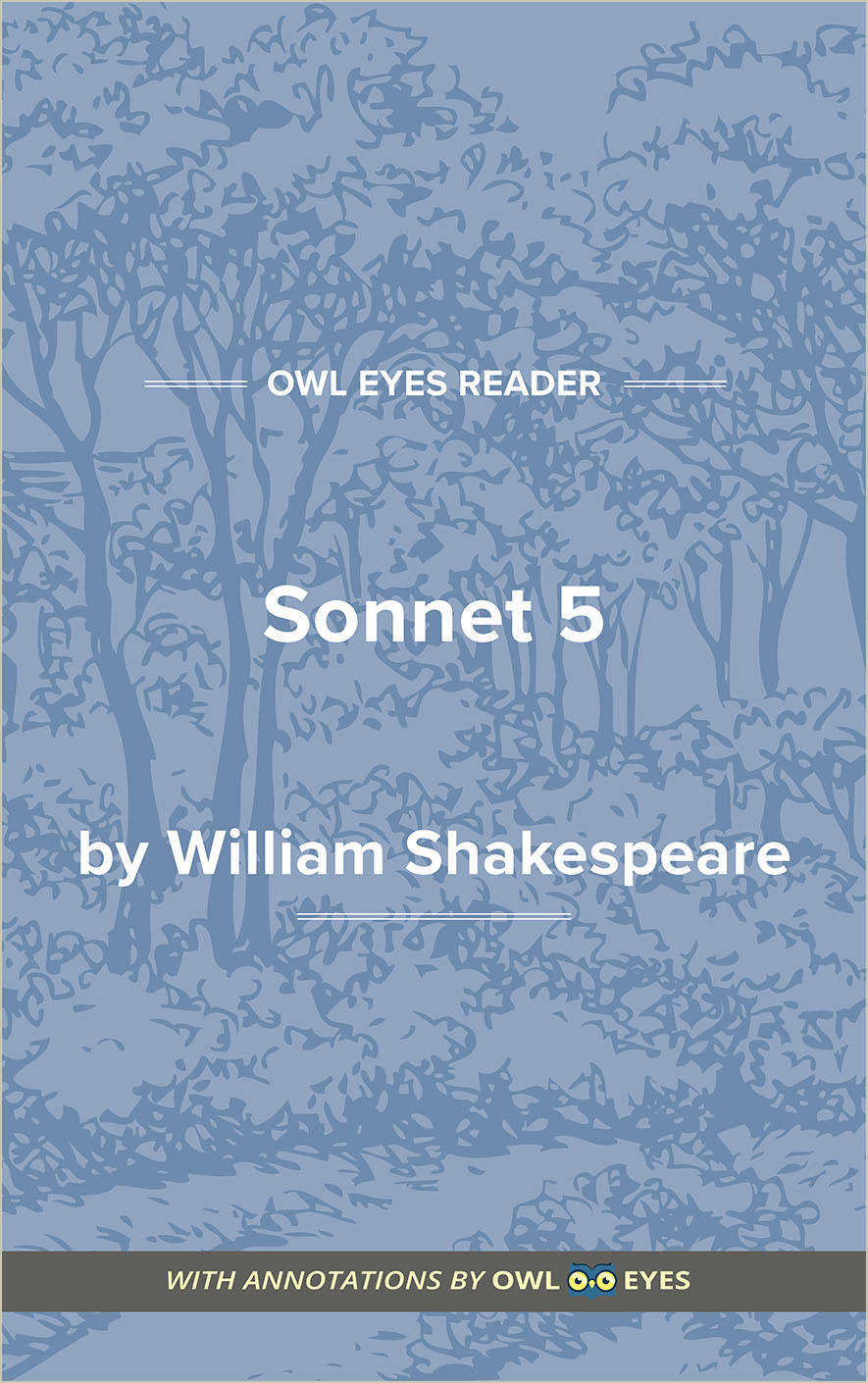The image of summer’s distillation operates on three levels. On one level, the image is that of a glass vial of rosewater. On another level, the youth’s essence—or “substance”—is trapped forever; he becomes a prisoner watching life carry on outside his confines. On a third level, the very poem itself can be seen as the “walls of glass” which encase the youth. Each line of poetry is a “wall” that must be seen through in order to discover the meaning within. The poem’s meaning, of course, is “liquid”: open to interpretation and change, impossible to pin down.

